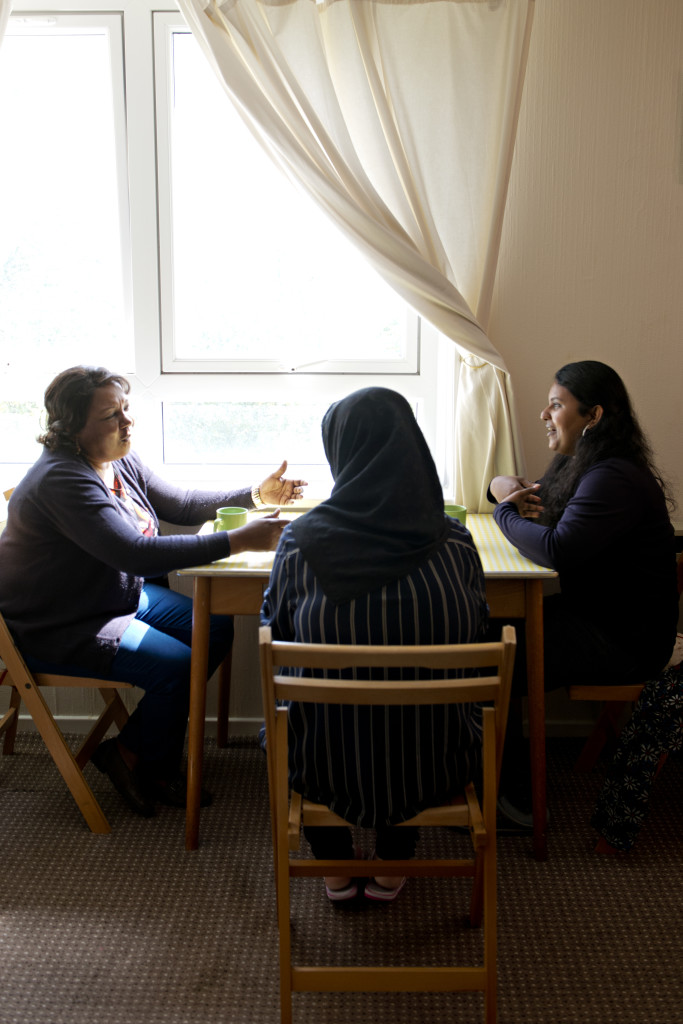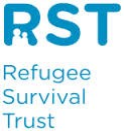RST Accommodation Worker Dodee Olangi tells us about her daily work on the DASS project.
“I joined RST as an accommodation worker in 2016. When I got this job, I was really happy meeting and helping people especially vulnerable ones and considering my previous studies in medicine back in Congo, I try to focus on people’s health.
“The way the Destitute Asylum Seeker Service (DASS) accommodation works is that, if an asylum seeker has been seen by one of our partners like British Red Cross (BRC) or Scottish Refugee Council (SRC) or others and they referred them to me, I then contact the person and if we have a vacant room for a man or woman, I would contact them and arrange a time to meet and move them to that accommodation. We currently have two flats and one house. Between 2 and 4 people of the same gender live in each property.
“My job is about practical support and listening to the concerns of our service users, about any issues they might have and then together with my manager we find the best way to help them by sign-posting them or by direct help.

“Before I take the individuals to their accommodation, an adviser from the SRC will go through a protocol about their behaviour and responsibilities while in that place and sign an agreement with them.
“Once the individual has been accommodated, it is up to me to visit them and make sure they are well-settled in their place and help them with their orientation in the local area. I support them to register at a local food bank and I would explain to them to come to our office on a weekly basis to get their £10 per week allowance. I also support individuals to register with a local GP and take them to appointments where necessary.
“We also provide a bus pass for as long as they live in DASS accommodation. This is to help the individual to go out and meet friends, to report to solicitors and also to the Home Office. It helps with avoiding isolation, loneliness and also helps them to familiarise themselves with the beautiful areas of the city.
“I make sure that electricity and gas are all running properly and that the place is nice and warm and if for example there is a problem with the boiler, I will report it so that it is dealt with as soon as possible.
“I also make sure our properties are kept clean by our service users and that they are happy living there. For example, one of our male service users had a problem with local boys in the area of one of our flats – there were some fights, he seemed to have been targeted by some locals and we had to move him as soon as possible. Luckily, we had a new flat available and we moved him there. He is very happy now over there.
“All the service users have told me that they feel safe and stable and happy in DASS accommodations, especially coming from their past experiences; being homeless on the street or sofa-surfing or sleeping at the night shelter, where they had to be out from 8 am to 8pm. I can see they completely change and have smiles in their faces after moving to our accommodation.
“I always encourage our service users in the accommodations to focus on their legal cases to sort it out as soon as possible, because this is temporary accommodation. We also help them if they need any support letters for their solicitor or elsewhere.
“I am very happy with my job, because I am helping vulnerable people and especially when they go back into the Home Office system, I mean onto Section 4 support, I feel relieved.”
Our recently published report From Pillar to Post calls for the Scottish Government to lead on the development and implementation of a human rights based approach to tackle asylum and migrant destitution, and specifically highlights that homelessness and anti-destitution strategies need to include clear accommodation options for refused asylum seekers and those with insecure immigration status.
Currently, accommodation options in Scotland are very limited. Aside from DASS’s accommodation, other options are hosting schemes like Room for Refugees and Refugees at Home, and emergency shelters like the Glasgow Night Shelter.


